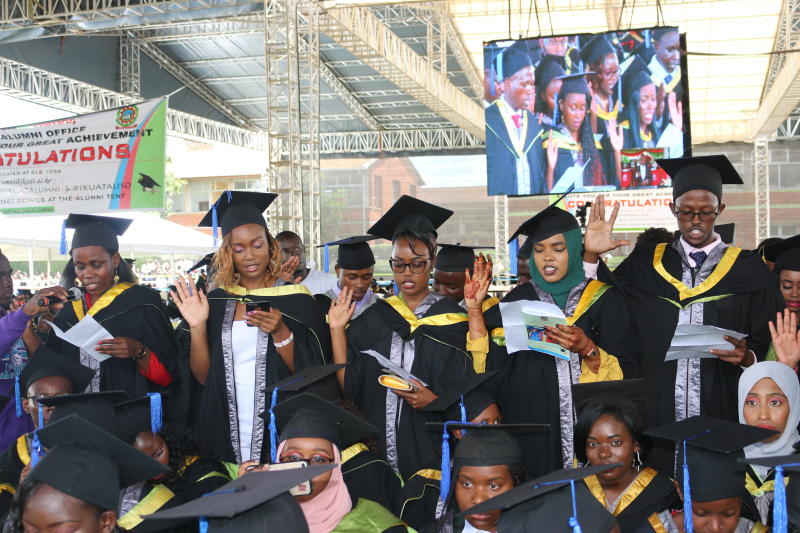
Jomo Kenyatta University of Agriculture and Technology (JKUAT) has graduated the first cohort of thirty Bachelor of Medicine and Bachelor of Surgery students after successfully completing the 6-year rigorous medical doctors degree training programme offered in the School of Medicine, College of Health Sciences.
The University Chancellor, Prof. Joseph Mathu Ndung’u, said, “JKUAT continues to mount programmes that are relevant to the needs of the industry, stating some graduands from the first cohort of Bachelor of Science in Business Computing, had already secured attractive employment opportunities locally and internationally.”